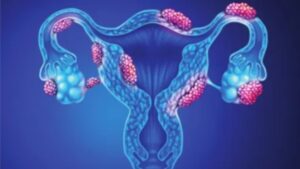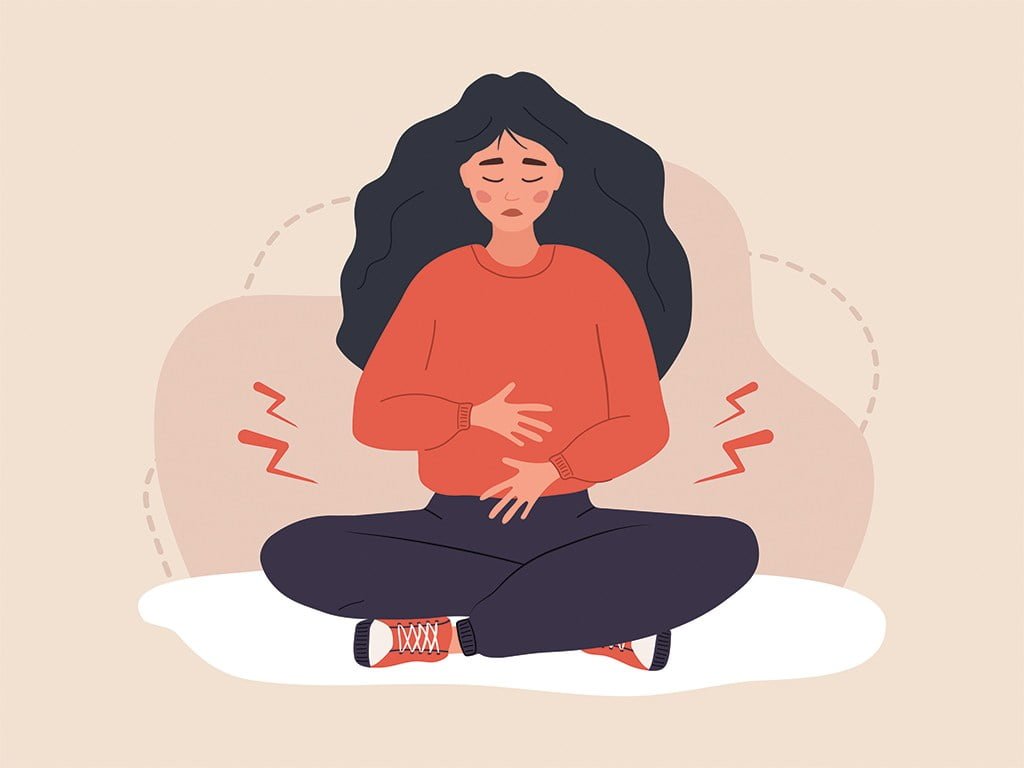Embarking on a journey to manage Polycystic Ovary Syndrome (PCOS) and Endometriosis requires a holistic approach that addresses both the physical and emotional aspects of these conditions. With millions of women worldwide facing the challenges posed by PCOS and Endometriosis, it’s crucial to explore effective treatments and lifestyle modifications that can provide relief and improve overall well-being. In this comprehensive guide, we’ll delve into various treatments for PCOS and endometriosis.
Contents
What Happens If You Have Both PCOS And Endometriosis?
 Having both PCOS and endometriosis is a challenging scenario for individuals, as these are two distinct but common reproductive health conditions that can coexist in some cases. Here’s a brief overview of what happens when someone has both PCOS and endometriosis:
Having both PCOS and endometriosis is a challenging scenario for individuals, as these are two distinct but common reproductive health conditions that can coexist in some cases. Here’s a brief overview of what happens when someone has both PCOS and endometriosis:
- Overlapping Symptoms: PCOS and endometriosis can share some symptoms, such as pelvic pain, irregular periods, and fertility issues. However, they are fundamentally different conditions with distinct underlying causes.
- Hormonal Imbalance: PCOS is characterized by hormonal imbalances, including elevated levels of androgens (male hormones) and insulin resistance. Endometriosis, on the other hand, involves the presence and growth of endometrial tissue outside the uterus. Both conditions can disrupt normal hormonal regulation in the body.
- Impact on Fertility: Both PCOS and endometriosis are associated with infertility, but they affect fertility in different ways. PCOS can lead to irregular ovulation or anovulation (lack of ovulation), while endometriosis can cause structural changes, adhesions, and inflammation in the reproductive organs, potentially impacting fertility.
- Diagnostic Challenges: Diagnosing and managing both PCOS and endometriosis simultaneously can be challenging. The symptoms may overlap, and the presence of one condition may mask the symptoms of the other. Careful evaluation by healthcare professionals, including gynecologists and reproductive endocrinologists, is crucial for accurate diagnosis.
- Treatment Complexity: Treatment plans for individuals with both PCOS and endometriosis may involve a multidisciplinary approach. Medical interventions may be recommended. Fertility treatments may also be explored, depending on the individual’s reproductive goals.
Individuals with both PCOS and endometriosis need to work closely with healthcare professionals to develop a comprehensive and individualized treatment plan. Open communication, regular monitoring, and a collaborative approach between the patient and the healthcare team are key elements in managing these coexisting conditions.
What Are The Common Treatments For PCOS And Endometriosis?
While PCOS and endometriosis are distinct conditions, they share some overlapping symptoms, and there can be common treatment approaches aimed at managing these symptoms. Here are some common treatments for PCOS and endometriosis that may be used:
Pain Management
For endometriosis, experiencing pelvic pain can be challenging, but the good news is that pain management strategies are available. Nonsteroidal anti-inflammatory drugs (NSAIDs) can offer relief by reducing inflammation and alleviating discomfort. Working closely with your healthcare provider to find the right approach for you is key to managing this aspect of endometriosis.
While pelvic pain may not be the primary concern for PCOS, it’s not uncommon for some women to experience discomfort. In such cases, NSAIDs can also be beneficial. Don’t hesitate to discuss any pain symptoms with your healthcare team—they are there to help you find solutions.
Hormonal Therapies
 Birth control pills play a versatile role in managing both PCOS and endometriosis. By regulating menstrual cycles and addressing hormonal imbalances, they not only provide contraceptive benefits but also contribute to symptom relief. If you’re considering this option, your healthcare provider can guide you through the choices available, tailoring the treatment to your unique needs.
Birth control pills play a versatile role in managing both PCOS and endometriosis. By regulating menstrual cycles and addressing hormonal imbalances, they not only provide contraceptive benefits but also contribute to symptom relief. If you’re considering this option, your healthcare provider can guide you through the choices available, tailoring the treatment to your unique needs.
Progestins, another hormonal therapy, offer additional options for managing symptoms. These can be particularly helpful in regulating menstrual cycles, reducing endometrial growth in endometriosis, and providing relief from various PCOS-related concerns.
Lifestyle Modifications
Embracing a balanced diet and incorporating regular exercise into your routine can be empowering steps towards managing both PCOS and endometriosis. These lifestyle changes aim to improve overall health, support weight management, and enhance insulin sensitivity. Small, positive adjustments can make a significant difference over time.
Stress management is a key component of overall well-being. Integrating mindfulness practices, yoga, or relaxation techniques into your daily life can help alleviate stress, benefiting not only your mental health but also potentially positively impacting symptoms associated with both conditions.
Fertility Treatments
If fertility concerns arise due to PCOS or endometriosis, various fertility treatments are available. Ovulation induction methods can assist in optimizing the chances of conception. In more complex cases, in vitro fertilization (IVF) may be considered, offering hope and possibilities for those navigating fertility challenges.
The journey to parenthood may have its unique challenges, but advancements in fertility treatments provide avenues for individuals to explore and consider. Open and honest communication with fertility specialists can guide you towards the most suitable options for your specific circumstances.
Surgery
Laparoscopic surgery stands out as a minimally invasive option for diagnosing and treating endometriosis. This procedure allows for the removal of endometrial tissue and addressing any adhesions, potentially providing relief from symptoms and enhancing fertility.
In the realm of PCOS, ovarian drilling is a surgical approach that can enhance ovulation by making small openings in the ovaries. While surgery may not be the first line of treatment, it remains a viable option for some individuals, and discussing the potential benefits with your healthcare team is a positive step forward.
Nutritional Supplements
Inositol, a type of vitamin B, has shown promise in improving insulin sensitivity and menstrual regularity in women with PCOS. Incorporating inositol supplements, under the guidance of your healthcare provider, can be a positive step towards managing the metabolic aspects of PCOS.
Omega-3 fatty acids, found in fish oil and certain foods, are known for their anti-inflammatory properties. Including omega-3 supplements in your diet, with the approval of your healthcare provider, may contribute to reducing inflammation associated with both PCOS and endometriosis.
Remember, every individual’s journey is unique, and the positive choices you make today can pave the way for a brighter and healthier future. Your healthcare team is your ally, ready to guide and support you on this path to wellness.
What Is The Best Diet For Endometriosis And PCOS?
 While there is no one-size-fits-all diet for endometriosis and Polycystic Ovary Syndrome (PCOS), adopting a balanced and nutritious eating plan can contribute to managing symptoms and promoting overall well-being. Here are dietary recommendations that may be beneficial for individuals with endometriosis and PCOS:
While there is no one-size-fits-all diet for endometriosis and Polycystic Ovary Syndrome (PCOS), adopting a balanced and nutritious eating plan can contribute to managing symptoms and promoting overall well-being. Here are dietary recommendations that may be beneficial for individuals with endometriosis and PCOS:
For Endometriosis
- Anti-Inflammatory Foods: Include foods with anti-inflammatory properties, such as fruits and vegetables, in your diet. Berries, leafy greens, and colorful vegetables are rich in antioxidants and can help reduce inflammation associated with endometriosis.
- Omega-3 Fatty Acids: Incorporate sources of omega-3 fatty acids, such as fatty fish (salmon, mackerel), flaxseeds, chia seeds, and walnuts. Omega-3s have anti-inflammatory effects and may help manage endometriosis symptoms.
- Fiber-Rich Foods: Choose whole grains, legumes, and fiber-rich foods to support digestive health. Fiber can aid in bowel regularity, potentially alleviating discomfort associated with endometriosis.
- Limit Processed Foods: Reduce the intake of processed foods, refined sugars, and trans fats. These may contribute to inflammation and can negatively impact overall health.
- Consider Gluten-Free Options: Some individuals with endometriosis find relief from symptoms by reducing or eliminating gluten from their diet. Experimenting with a gluten-free diet, under the guidance of a healthcare professional, may be worth exploring.
- Stay Hydrated: Drink plenty of water to stay hydrated. Proper hydration supports overall health and can aid in managing symptoms like bloating and discomfort.
For PCOS
- Balanced Carbohydrates: Opt for complex carbohydrates with a low glycemic index, such as whole grains, legumes, and vegetables. These can help regulate blood sugar levels and improve insulin sensitivity in PCOS.
- Lean Proteins: Include lean protein sources in your diet, such as poultry, fish, tofu, and legumes. Protein helps with satiety and can assist in managing weight, a common concern in PCOS.
- Healthy Fats: Choose sources of healthy fats, such as avocados, nuts, seeds, and olive oil. These fats support hormone production and can contribute to overall hormonal balance in individuals with PCOS.
- Regular Meals and Snacks: Eat regular, balanced meals and incorporate healthy snacks to maintain stable blood sugar levels. This can help manage insulin resistance, a key aspect of PCOS.
- Limit Added Sugars: Minimize the consumption of added sugars and sugary beverages, as they can contribute to insulin resistance. Read food labels to identify hidden sugars in processed foods.
- Moderate Dairy Intake: Some individuals with PCOS may benefit from moderating dairy intake. Opt for low-fat or non-dairy alternatives and consider consulting with a healthcare professional to determine the most suitable approach.
Remember, it’s essential to consult with your healthcare team or a registered dietitian to create a personalized dietary plan tailored to your specific needs and health goals. These general tips can serve as a starting point, but individual variations and responses to dietary changes should be taken into account.
Conclusion
In conclusion, treatments for PCOS and endometriosis are a unique journey that requires a multifaceted approach. By combining medical treatments, such as hormonal therapies and surgeries, with lifestyle changes like a balanced diet, regular exercise, and stress management, individuals can take positive steps toward symptom relief. Fertility concerns, common in both conditions, can be addressed through fertility treatments and a supportive healthcare team.
Remember, each person’s experience is unique. So working closely with healthcare professionals to tailor a personalized plan is key to navigating the path to wellness. Additionally, building a strong support network and seeking inspiration from others who have faced similar challenges can provide encouragement and empowerment on this journey. If you are facing PCOS-related issues, PCOS treatment at HerMantra can help. Book your free trial online pcos treatment session now.


